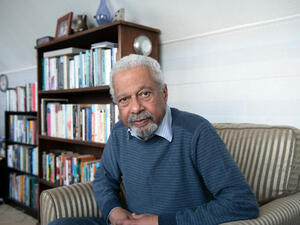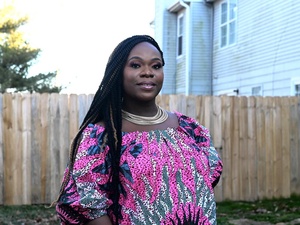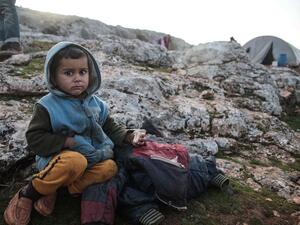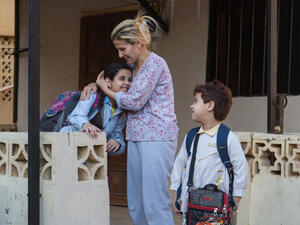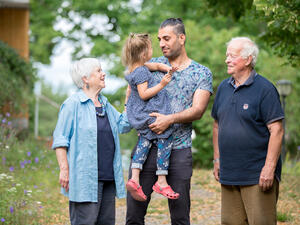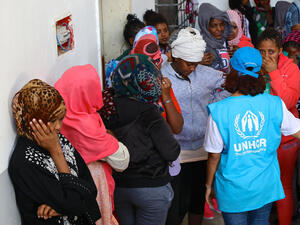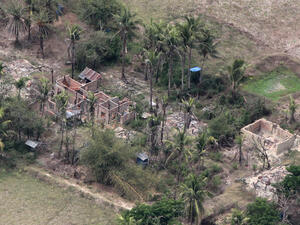Chad: UNHCR raising concerns about refugee protection
Chad: UNHCR raising concerns about refugee protection
There has been a serious turn of events in Farchana camp for Sudanese refugees in eastern Chad. Yesterday (Thursday), two refugees died during operations by Chadian government authorities to stem unrest in the camp. Sixteen persons were detained in the camp and one person was detained in Breidjing camp.
Aid workers told UNHCR yesterday that they had seen two bodies, a man and a woman, that had been taken from Farchana camp after the Chadian government operation to find those responsible for recent attacks on humanitarian workers in the camps.
UNHCR deeply regrets the death of the two refugees and is raising its concerns about the protection of refugees at the highest levels of the Chadian government. Together with the government over recent days, UNHCR has been making every effort to resolve this situation in a peaceful manner including using local tribal leaders to intercede.
UNHCR's acting country representative is flying to Abéché today to meet the Minister of Territorial Administration and the regional governor to press home our deep concerns about their security operations in the camps.
UNHCR and NGO aid workers were not present in the camps at the time of the operations. The Chadian government had earlier ordered all aid workers other than officials of CNAR - the Commission Nationale d'Accueil et de Réinsertion des Réfugiés - UNHCR's government counterpart - to temporarily withdraw from Farchana and Breidjing after the violence that erupted on July 13 and July 16.
The first incident was on July 13 when a group of refugees protesting against efforts to improve conditions in Farchana camp attacked aid workers with stones and other projectiles, injuring one UNHCR staff member and a worker from a non-governmental organisation. UNHCR and government officials immediately undertook efforts to talk to Farchana's self-proclaimed refugee leaders.
A similar incident took place three days later in Breidjing camp when two NGO workers were attacked by refugees with knives, leaving one of them seriously injured. It was reported at the time that some refugees had travelled from Farchana to instigate the unrest. Following this second incident, government authorities made multiple efforts to visit the camps and UNHCR endeavoured to mediate between the two parties. A meeting on July 18 in Farchana camp, which hosts some 11,800 refugees, was largely fruitless as the refugee leadership shunned the joint government/UNHCR delegation. While the officials managed to meet with six refugees, other members of the refugee community outside the meeting used megaphones to transmit threatening messages against the delegation and the refugee participants. That mission had to return to Farchana town, sensing the situation could rapidly deteriorate further.
The reasons behind the attacks are still not clear, but there are reports that some refugee leaders fear that efforts to improve camp living conditions suggested an extended period of exile.
Since the outbursts, the Chadian government has made four attempts to talk with the refugees but was repeatedly rebuffed. Aid workers and government officials say that men claiming to speak for the 40,000 refugees at the two camps, have been making conflicting claims during mediation attempts.
Breidjing, which has expanded to twice its planned size, has around 30,000 refugees after unexpected spontaneous arrivals from the border. Most refugees are relocated by UNHCR from the volatile border zone.
Meanwhile, UNHCR is starting an airlift of 60 four-wheel-drive vehicles and more than 24,000 water buckets to N'Djamena this weekend on three flights from Spain using giant Antonov-124 freighter aircraft. This operation will end on August 3. Our airlift of more than 16,000 tents from Pakistan is continuing, with two Ilyushin-76 planes arriving in N'Djamena today from Karachi, with the final two flights of the 21-plane airlift expected by Monday.


